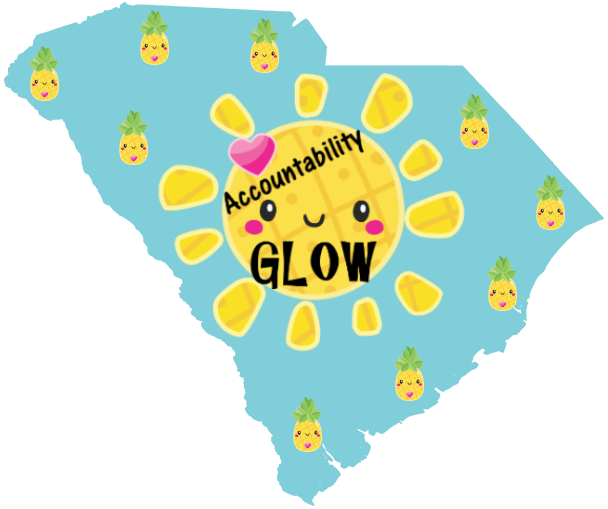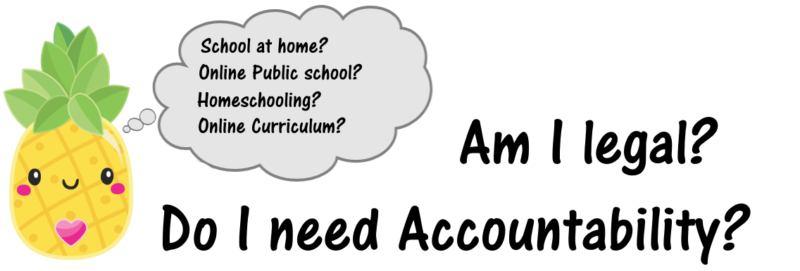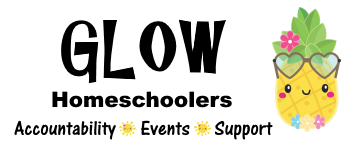
Getting Started as a Homeschooler
Getting started can be intimidating for first-time homeschoolers. This quick-start guide can help. Each step can be expanded for more details.
All South Carolina homeschoolers need to join an accountability association and meet the following minimum requirements provided in the Option 3 homeschool law:
One question that comes up often is “Can someone else homeschool my child?”
When a family enrolls in an accountability association, the primary parent/teacher must always be a parent or guardian of the child. The parent is free to educate in the best way for their child and family. This can include using tutors, classes, and other instructors to supplement your education.
What counts as a school day?
Any day you do anything educational with your child for any length of time. This can be a core subject or another subject. Education can be in the form of instruction, independent learning, or activity.
How long does each school day need to be?
There is no length of day requirement for option 3 homeschooling. Some days can be short, some can be long.
What subjects do we need to cover each day?
You can cover any subjects on a school day. It can be a single subject or many. It can include core subjects, or other subjects.
There are 5 core subjects that are required to be covered during the year:
- Reading (Literature in grades 7-12)
- Writing (Composition in grades 7-12)
- Math
- Science
- Social Studies
Do other subjects count as school?
Absolutely! You are also free to add elective subjects which also count as school.
What subjects do we need to cover each day?
You can cover any subjects on a school day. It can be a single subject or many. It can include core subjects, or other subjects.
Do I need to cover the same subject material as the public schools?
No. Science can be any science subject during the year. Social studies can be any period in history, any geography, any social customs, etc. Reading and writing can be on your child’s level rather than the standard school level. Math can be any math subject.
If you are curious about the SC school grade level standards, you can find them here.
Educational records are kept by the parent and include:
- A journal or plan book – a dated record showing subjects and activities done on each educational day
- A portfolio with samples of academic work
- Semiannual progress reports (2 per year) showing attendance and progress in each of the required subject areas.
GLOW Accountability provides samples and DIY forms for members. Find more details on documentation here:
South Carolina homeschool law is part of the compulsory attendance laws. See the complete code of laws here:
Option 3 homeschooling… What are options 1 and 2?
Option 2 homeschooling is similar to option 3 except that families join a single accountability association, SCAIHS (South Carolina Association of Independent Home Schools), which has stricter academic requirements. For more information go to www.schomeschooling.com.
Option 1 homeschooling is not very common and is done at the discretion of the public school. It is usually used when the school thinks a student needs to be at home for a while. It is not virtual public school or any of the pandemic school options.
South Carolina homeschoolers are required to join an accountability association.
The associations complete an annual review survey with the SC department of education. Once a year they report the number of students per grade level to the school districts. When you join, your family will receive a membership letter and/or ID card as proof of membership. Most associations will also answer questions about homeschool requirements and withdrawing or enrolling in school.
Some associations offer additional services and mandatory requirements like:
- Support groups, social activities, events
- Report cards, record keeping, attendance
- Education plan approval, curriculum counseling, testing
- Religious agreements
- High school services: transcripts, class ranking, diploma, honors course validation
GLOW Accountability Association imposes the minimum accountability requirements according to the law with no extra mandatory requirements. We offer additional optional features and services like support groups, events membership, DIY Forms, documentation samples.
If you were registered for school last year or for the upcoming year, you as the parent or guardian will need to withdraw your child from school. Notify the school that you are withdrawing and give them a copy of your accountability letter. Some schools will have a form for you to fill out. If you have any problems withdrawing, contact your Accountability Association. 99% of the time this is an easy process.
Free to Choose
Homeschoolers are free to choose any curriculum and learning materials they feel is best for their child and family. Curriculum is not a requirement but can be a great learning tool. There are lots of choices. You can get books, workbooks, online classes, downloads, etc. I advise new homeschoolers to take their time. You do not have to start teaching every subject on day one. Start with a subject or two and try a curriculum or program. Don’t be afraid to put something away if it is not working.
Learning Styles
Take a look at your child’s learning style and interests. Does he like worksheets? Does she love coloring? Do they spend a lot of time outdoors? Is he always in motion? Is she reluctant to read or write? There are a lot of articles and quizzes available to help determine learning styles.
Homeschool Philosophies
Some parents also like to look at homeschool philosophies. You will see terms like Classical, Waldorf, Charlotte Mason, Unschooling, Unit Studies, etc. If you feel an affinity with one of these published methods, that can help you plan your learning. Many experienced homeschoolers are in the Eclectic category, which means they use what best suits them for a particular subject or time period.
Where to Learn
Not all learning has to be at home. Many families join co-ops or pods, or other parent led groups to facilitate learning in groups. Kids can take classes or be tutored outside the home. Some families do lots of field trips as a family or with a homeschool group.
High School Plan
If you have a child in 7-12 grades, make sure you have a plan. Kids in 7-8 grade can get high school credits for HS level classes. Students in 9-12 grades may need a high school transcript for college, or if transferring into a traditional school.
Younger Kids
Younger kids are especially easy to teach without curriculum. Reading aloud is a key activity to do with young children. Basic math skills can be found in counting, on fingers, asking your child to add small numbers. Writing can be an extension of drawing. A lot of kids want to learn to write their name and age. Science and social studies can be fun activities with your child.
Planning to Enter Traditional School
If you plan for your child to enter school in the next year, you may want to make sure to keep up with the school’s grade level. For younger kids, they will feel especially behind if they are not on par with math, reading, writing. Kids adapt easily and can often “catch up” to grade level in much less time than the schools take to cover a subject. To see the South Carolina Standards and Learning here:
What Counts as School?
Here are some examples of educational activities that are not based in curriculum. These may count as core subjects or as electives:
- Field trips, educational events, museums
- Art projects, art appreciation, wood working
- Music – singing, playing, appreciation, performing, attending performances
- Physical education – sports, playground, tag, trampolines
- Board games, Coding, Educational games online
- Creating – Legos, obstacle course, treasure map, cardboard box house
- Life skills – baking, typing, etiquette, party planning, new chores, grocery store
- Nature activities – identify bugs, bird watching, hiking, fishing, flower pressing, gardening
- Animal care, learning about animals
- Reading – read-aloud, books of interest, magazines, cereal boxes, music lyrics, library trips
- Audio books, podcasts
- Documentaries, How-To videos, online research into interesting subjects
- Writing – journals, songs, notes, signs, homemade cards, menus
- Outdoor play – fort building, hole digging, collaborative play, exploring
- Volunteer opportunities
- Classes such as art, gymnastics, dance, theater, karate, languages, etc.
- And more… Get creative, follow you child’s interests, learn and explore!


